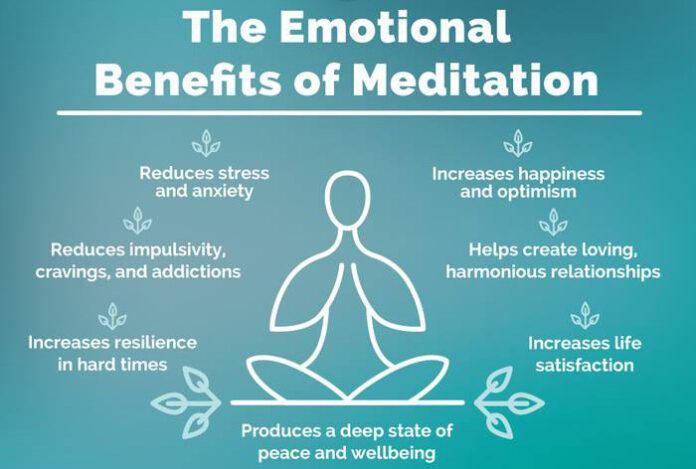The Benefits of Mindfulness
The many benefits of mindfulness are not only limited to the physically healthy. It has also been shown to reduce stress and anxiety, improve attention and reduce suicidal thoughts. This article will discuss some of the most common benefits of mindfulness. So, how can mindfulness benefit you? Let’s explore the benefits of mindfulness and how you can implement it into your daily life. We’ll start by looking at the physiological benefits of mindfulness. This is an easy exercise for everyone to do, and you’ll soon see why you’ll benefit the most from it.
Incorporating mindful practices into our daily lives is a powerful way to reduce stress. It helps us become more focused, reduce our stress response, and increase our well-being. Mindfulness also allows us to change our attitude towards stress, giving us the space we need to react to a stressful situation in a different way. Mindfulness can be helpful in many situations, including work, as it teaches us to notice stress in a non-judgmental manner.
Researchers in the University of Massachusetts Medical Center have studied mindfulness as a stress reduction technique for several years. The methods they use have been shown to be effective in reducing psychological and physical symptoms of stress. A study published in 2011 found that the program improved participants’ blood pressure, heart rate, and blood pressure, as well as their overall mental health. These findings have helped bring mindfulness meditation into the mainstream of medicine. Now, many health professionals are beginning to use mindfulness as a way to reduce their stress levels.
To identify studies that have shown that mindfulness reduces stress, the authors conducted a systematic literature review. The review included articles published in English and included in the Medline, Alt HealthWatch, and CINAHL databases. Among the articles screened, only three were larger than 155. Most reviews were missing power calculations and justifications. Future research should consider conducting longitudinal studies and developing standardized versions of the mindfulness-based stress reduction program.
Mindfulness meditation can help you focus better. Meditation helps your brain react to stressful situations in a more relaxed way. It also helps you manage your stress better. This results in better focus and performance. For example, a study of focus participants showed that they improved their reading comprehension and working memory after just two weeks. This suggests that mindfulness is an excellent baseline practice to prevent stress. When used as a regular habit, mindfulness meditation can help you cope better with stressful situations.
Reduces anxiety

The ancient practice of mindfulness is an excellent way to relieve excessive worries. This practice involves slowing down and paying attention to every experience. People tend to think about stressful situations in the future and dwell on the past, but practicing mindfulness allows them to be more present in the moment. Practicing mindfulness allows them to experience their feelings and experiences without judgment. The result is reduced anxiety and a happier outlook on life. It is a practice that can be used in a wide range of situations, including stressful ones.
The mind does not naturally rest. It is wired to process information, analyze, and evaluate. When you’re anxious, these processes are triggered into overdrive. Mindfulness exercises require a conscious effort to focus attention, and can be challenging, especially for those who experience anxiety. Fortunately, there are some apps available that help people focus. And when they’re too distracted to focus, they can use visualization tools to change their focus.
One of the most promising interventions for treating mood and anxiety is mindfulness-based therapy. This therapy focuses on being aware of thoughts and the way they affect the body. Researchers believe that mindfulness can reduce anxiety and improve cardiovascular function. Ultimately, the benefits of this practice should be well worth the effort. And they’re confident that this approach has the potential to help more people. So, what’s stopping you from trying it? Here’s how it works.
While practicing mindfulness, focus on breathing. By focusing on your breathing, you can improve your mind’s focus and reduce your stress levels. In addition to reducing anxiety, this exercise can also improve your physical health. Anxiety can be crippling and can affect your quality of life. But, mindfulness exercises can help you learn to accept anxiety and move forward with your life. And you can even practice mindfulness online. Just remember to be gentle with yourself.
Improves attention
In a recent study, researchers found that meditation training improved attention in a number of types of tasks. However, the type of attention improved varied, depending on the study. In one study, participants in a three-month intensive meditation retreat showed significant improvements in alertness and executive attention. Another study conducted by Jha et al. (2007) included a mindfulness-based stress reduction course. The results were not conclusive, but they did show a significant impact on executive attention and alerting.
In another study, participants who listened to a meditation tape showed reduced P3b in incongruent trials, while those with lower neuroticism did not show any change. These results suggest that meditation may reduce attention towards trials that do not require focused executive attention, and may have some effect on attention in neuroticism. However, further research is needed to determine if mindfulness training improves attention. Although there are still a number of challenges ahead, a variety of benefits from the practice of meditation may be worth the effort.
These findings suggest that meditation can improve attention and performance in novices. In addition to the immediate benefits of meditation, the results suggest that the practice can also have a beneficial effect on the underlying processes affecting attention. These findings may have important implications for psychological research on attention. Further research into the relationship between meditation and attention may help researchers understand how the brain processes are regulated. The current study is the first of its kind to test these effects in human subjects.
In this study, researchers looked at how short meditation sessions could improve executive attention. In addition, they measured the Flanker effect and RTs on correct trials. Both studies showed a difference between the two conditions, but the meditation condition participants exhibited a smaller Flanker effect compared to their control counterparts. Thus, it is unclear which study is better. The findings do support Hypothesis 1a, but not the other one.
Reduces suicidal thoughts
A growing body of research shows that mindfulness can reduce suicidal thoughts. In this article, we discuss the evidence for this claim by providing two case studies. Using these case studies, we can see how mindfulness can help suicidal clients. While mindfulness is a very valuable intervention, it should only be used as one part of a broader treatment plan. While there is some evidence to support the use of mindfulness in suicidal clients, further research is needed to determine whether it has long-term effects.
One example of a case study involves a woman named Anne who began using mindfulness to reduce her suicidal thoughts. She developed the skill of seeing these thoughts as thoughts and learning how to refocus her attention on the present moment. This helped her respond better to the challenges and pleasures of her family life. Anne continued attending biweekly sessions of the therapy for twenty weeks. She eventually discontinued it because she felt she no longer needed the treatment.
Another example is an intervention that uses mindfulness to reduce suicidal thoughts in China. Researchers found that mindfulness training helped participants recognize suicidal thoughts as just that, and that it reduced the risk of suicide by more than 80 percent. Mindfulness is a powerful tool for coping with difficult emotions, and it can help individuals deal with negative thoughts in a more balanced way. It can help them deal with their feelings by reducing the frequency and intensity of suicidal thinking.
The study also looked at how mindfulness improves memory in suicidal patients. Among suicidal patients, mindfulness-based interventions reduced overgeneral autobiographical memory. It is thought that mindfulness-based interventions reduce the tendency to suppress private events, allowing for better encoding of autobiographical information. It also improved people’s ability to deal with unpleasant memories. The researchers also suggested that mindfulness training could be used to treat mental disorders.
Improves memory
A recent study has demonstrated that mindfulness practice enhances memory performance. The authors of the study found that the participants of the mindfulness practice showed significantly greater verbal free recall compared to control participants. The study also found that the mindfulness practitioners had greater gray matter density in their hippocampus, which is implicated in episodic memory. This is great news for the memory and learning field. However, it’s important to note that these findings are preliminary. More research is needed to confirm these results.
In order to better understand the mechanisms involved, researchers tested participants’ episodic memory performance by administering very brief mindfulness training and comparing it to control groups who were taught to focus on personal goals. The findings from this study support previous research showing that mindfulness can improve memory performance. The findings of the study also suggest that it may also enhance educational and occupational performance. In addition, mindfulness training has shown to be beneficial for motivation. Therefore, researchers are hopeful that these studies will help inform further research on the benefits of mindfulness.
The study also showed that mindfulness can improve working memory. It also improved students’ attention span and lowered their levels of anxiety and depression. In addition, it has shown that mindfulness meditation can improve attention, working memory, and short-term memory. To test this effect, researchers randomly assigned 90 students to three different conditions: the audiobook condition and the meditation condition. In the control condition, participants were allowed to spend their time however they wanted. The study also examined how meditation affected their moods and emotions.
Research on the memory benefits of mindfulness is promising. Previous studies have found that mindfulness training improves attention and working memory, two processes crucial for episodic memory. However, the results of these studies are mixed. Further, the researchers have studied the early Buddhist canonical descriptions of mindfulness. Despite the mixed results, previous empirical studies suggest that mindfulness can improve attention and working memory. It is also important to note that there are currently few studies that explore the relationship between episodic and working memory and mindfulness training.










